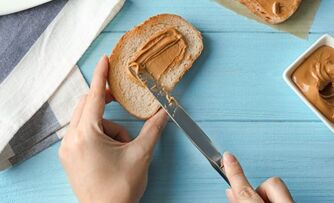花生酱是否有利身体健康?
|
Peanut butter is an extremely popular spread, filling and tasty, and it's perfect on toast in the morning or for a mid-afternoon snack. It's packed with protein, as well as many healthy fats, so for those trying to build muscle it seems like a great choice. However, many people believe peanut butter to be unhealthy, and it certainly can be when manufacturers mix it with salt, sugar or other unhealthy additives. It would be tempting to believe that crunchy peanut butter is healthier than smooth, but actually that makes no difference. Read on to find out more about whether peanut butter is healthy.
What is actually in peanut butter? Peanut butter is a relatively uNPRocessed food comprising peanuts that are ground into a paste. However, different commercial brands of peanut butter sometimes add ingredients to this including sugar, vegetable oils and even trans fat. If the brand is just ground peanuts then the health effects of peanut butter should be identical to just eating peanuts which means high protein, healthy fats and fiber. Calories One of the reasons that people believe peanut butter is unhealthy is because it is high in calories, but the quality of the calorie intake determines whether it is good or bad. Two tablespoons of peanut butter contains 188 calories, 8g protein, 6g carbohydrate and 16g fat (if not mixed with additives). Although 188 calories sounds a lot, and can account for nearly 10% of your daily intake, this is not necessarily bad. It's high fat content makes you feel satiated with fewer calories, thus meaning you will eat less throughout the day. Weight is dictated by calories in and calories out so a moderate amount of peanut butter certainly can fit into your daily food intake. Low fat Alongside the caloric load, peanut butter's saturated-fat content is a concern for some people, particularly as it was considered a big cause of heart disease and was disparaged by the fat-loss community. Saturated fat is not as evil as it is made out and is actually beneficial to the production of testosterone and vitamin D. |









